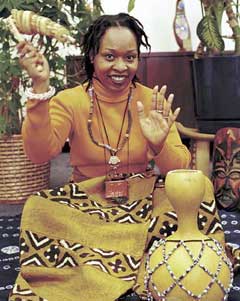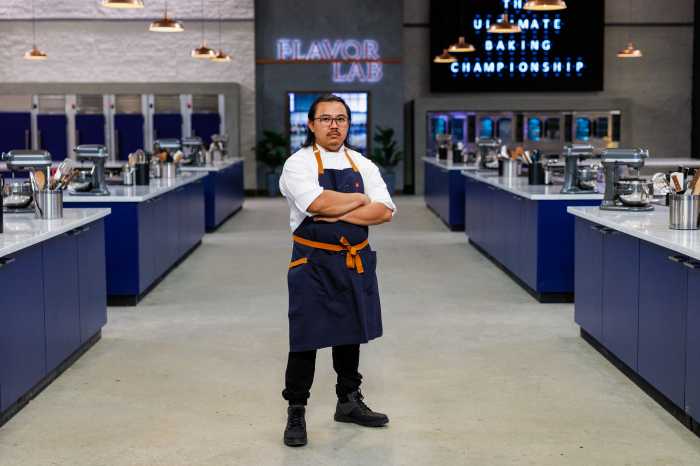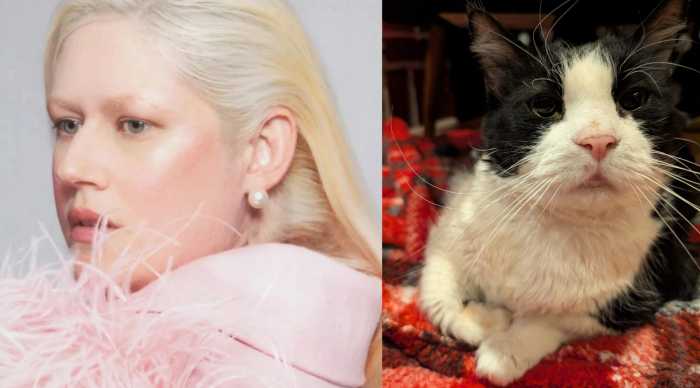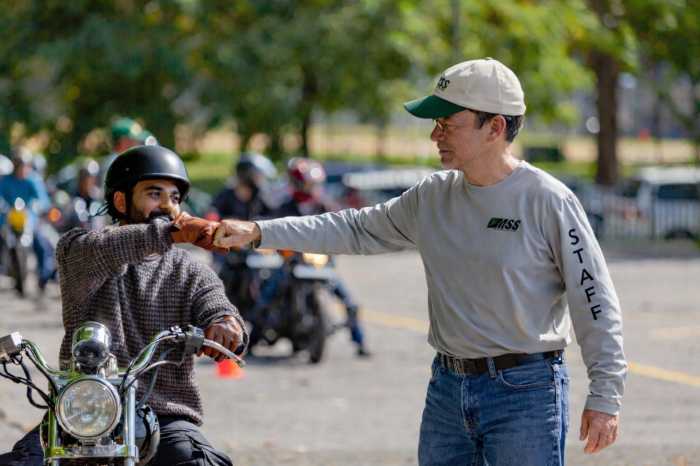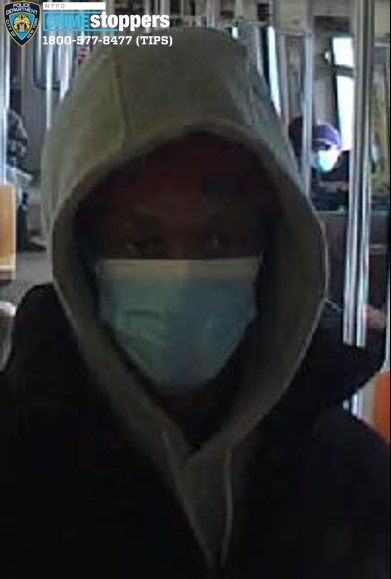Although Tracy Cook comes from a family that loves to read
and tell stories, and she herself began writing at the age of
6, she didn’t become a professional storyteller until a friend
discovered Cook’s true calling.
"It was back in 1995. I was a stay-at-home mom, and I
belonged to a group called Flatbush Family Network. I told stories
to a group of preschoolers," says Cook. "A friend of
mine came, heard me and was so impressed that she did research
and found out people actually do this for a living."
Cook and her friend, Tammy Hall, began going to storytelling
swaps where they would learn new stories. "They say you
can’t own a story, so whatever you hear you can take away with
you," says Cook. Eventually, Hall became a professional
storyteller.
Then in 1999, Cook filled in for her friend at the Central
Library at Grand Army Plaza, and she was on her way. Soon Cook
was performing at parties and museums such as the Brooklyn Children’s
Museum, the New Jersey Museum of African-American History in
Jersey City and the Arthur Ashe Foundation in Crown Heights.
Often she takes her own two sons – Gage, 7, and Cameron, 6 –
along with her.
Cook specializes in African Diaspora tales from Central America,
the Caribbean and the United States. Many of her tales are told
in the accents of the native people, such as the Gullah tales
from the islands off South Carolina, Georgia and northern Florida.
One of those, called "Sukey and the Mermaid," is about
a mermaid who saves the life of a little girl. Cook tells the
story in the Gullah patois, a combination of African, English
and French.
But Cook also tells tales from throughout the world. In celebration
of Kwanzaa, she performs a Benin tale called "The Dance
of Poverty" about how a man named Aminagae tries to get
something for nothing and is taken from poverty, only to be returned
to poverty because he doesn’t want to give back.
Cook says she "feels deeply" about Native American
tales because "as a culture and a people they are very close
to people of African-American descent in the way they live their
lives. And also 80 to 85 percent of African-Americans have some
Native American blood, including myself. I have some Seminole
blood on my mother’s side."
But there is also a very personal element to Cook’s storytelling.
"I try to incorporate a lot of characters from people I
have known, like my grandparents and my mom," she says.
Despite personal variations, Cook believes "every country
has pretty much the same themes running through their tales –
wise people versus not-so-wise people; minding one’s parents
in children’s tales; tricksters tricking and getting tricked;
bad people getting their comeuppance; and what happens to greedy
people."
In America, African tales evolved "because slavery changed
the face of what we talked about," says Cook. Thus Anansi,
the trickster, would trick people out of their food or into becoming
his food in Africa, while in America he would trick the master
into letting him off work.
Cook, who was born and raised in Flatbush, is a graduate of
Edward R. Murrow High School where she performed in many plays.
She dances, sings and speaks Spanish and French. All of which
serve her well in storytelling.
Her poetry has been published in African Voices magazine,
and she performs frequently at Brooklyn Moon, a poetry house
cum cafe in Fort Greene.
Earlier this month, which is Black History Month, Cook performed
at the Picnic House in Prospect Park for "Jack and Jill,"
a national association of African-American mothers and children
that promotes social interaction.
The tales Cook tells have a background. They are the faithful
picture of a people, their lives, their loves and the lessons
they have to teach. And Cook is both teacher and bard.
Tracy Cook performs frequently at Brooklyn Moon, 745 Fulton
St. between South Oxford Street and South Portland Street. Brooklyn
Moon hosts poetry readings every Friday at 10 pm. For more information
call (718) 243-0424.
Cook also reads poetry at Center State New York in Manhattan,
48 West 21 St., 4th Floor, between Seventh and Eighth avenues,
every third Sunday. For more information, call (212) 929-2228.


